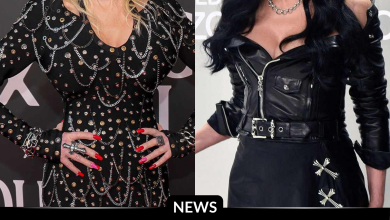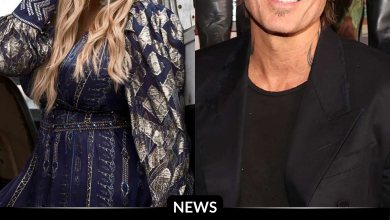Johnny Depp’s Willy Wonka Voice: How a Playful Game of Barbies Shaped an Iconic Performance
OPINION: This article may contain commentary which reflects the author's opinion.
Johnny Depp’s portrayal of Willy Wonka in Tim Burton’s 2005 Charlie and the Chocolate Factory remains one of the actor’s most memorable and distinct performances. Known for his slightly lispy, aloof voice, Depp’s take on the iconic character was a stark contrast to Gene Wilder’s more whimsical interpretation in the 1971 adaptation. The choice of voice, a pivotal part of Depp’s unique characterization, was influenced by a playful moment with his daughter, Lily-Rose Melody Depp, during a game of Barbies. This seemingly innocent interaction played a crucial role in shaping the Wonka we all remember.
Testing the Voice: A Game of Barbies
The now-famous story of how Depp developed Wonka’s voice begins with a lighthearted moment spent with his young daughter. During an interview with the Irish Examiner in July 2005, Depp shared a charming anecdote from a time when he was playing with Lily-Rose, who was just six years old at the time. “I often play Barbies with Lily-Rose,” Depp recalled. “Sometimes I will put on an accent, and she’ll say, ‘Daddy don’t use that voice.’ Then one day, I started to use my Wonka voice, and she kinda lit up a bit, like, ‘Where’s that coming from?’ And I thought, ‘All right, I think I’m on the right track here.’”
This moment was significant because Lily-Rose’s honest reaction was key. As Depp explained, children are often the most candid and honest audience an actor can have. Her positive response, which Depp described as “lighting up,” was enough to confirm that he was on the right path with his unique interpretation of Willy Wonka.
This playful yet revealing exchange not only provided Depp with valuable feedback but also became a defining moment in his creative process. The authenticity of his daughter’s reaction proved instrumental in shaping one of the most memorable aspects of his performance.
A Distinctive Voice: Inspirations Beyond the Playtime
While the game of Barbies played a pivotal role, Depp’s inspiration for Wonka’s voice came from a variety of sources. Depp spoke in interviews about drawing from childhood television figures such as Bob Keeshan (Captain Kangaroo) and Fred Rogers (Mister Rogers’ Neighborhood). He described the “bizarre, musical cadence” of these hosts as central to his vision of Willy Wonka, helping him to shape the character’s eccentric and endearing qualities.
Interestingly, Depp also mentioned imagining what a highly altered version of George W. Bush might sound like “incredibly stoned,” adding a peculiar twist to his thought process. However, Depp was quick to dismiss any comparison to Michael Jackson, despite the public’s early speculation about the singer’s influence on the character. In an interview with CBS News in 2005, Depp clarified that the character’s inspiration was rooted in the strange charm of children’s television personalities, rather than any real-life figure.
This combination of childhood nostalgia and offbeat humor provided the foundation for the voice that would become synonymous with Depp’s Wonka. His choice of a slightly lispy and aloof tone gave the character an air of both quirkiness and depth, distinguishing him from previous portrayals of the beloved chocolatier.
The Impact of Family Feedback on Depp’s Method Acting
Depp’s willingness to involve his family in his creative process reflects his broader approach to acting, which often integrates personal experiences and playful experimentation. This method, evident in his portrayal of Captain Jack Sparrow in the Pirates of the Caribbean series, highlights Depp’s belief in family feedback and casual play as vital parts of the acting process. For Depp, these interactions were not just lighthearted but deeply formative, influencing the direction of his characters in a way that felt authentic and organic.
The feedback from Lily-Rose, though playful, validated his approach, and the resulting voice became a defining feature of Wonka’s character. It was a voice that balanced whimsy and awkwardness, creating a Wonka who was both eccentric and somewhat distant—a far cry from the warmth and affability of Wilder’s portrayal.
Reception and Legacy of Depp’s Wonka
Depp’s performance in Charlie and the Chocolate Factory was met with mixed reviews, but his distinctive interpretation of Wonka became a talking point. His slightly lispy voice and offbeat mannerisms were polarizing for some, but they also cemented his status as an actor willing to take risks and break away from traditional characterizations. Depp’s work earned him a Golden Globe nomination for Best Actor in a Comedy or Musical, underscoring the impact of his portrayal despite divided critical reception.
The character’s uniqueness also contributed to the film’s commercial success, which grossed over $475 million worldwide. Depp’s interpretation of Wonka continues to be remembered for its quirkiness, setting it apart from previous portrayals and contributing to the film’s lasting legacy in the world of family cinema.
Conclusion: The Creative Play Behind an Iconic Role
Johnny Depp’s portrayal of Willy Wonka in Tim Burton’s Charlie and the Chocolate Factory stands as a testament to the actor’s ability to blend creativity with personal experimentation. The moment during a game of Barbies with his daughter, where he tested the Wonka voice, remains a charming and integral part of the character’s creation. It speaks to Depp’s method acting approach, where family feedback and a playful, informal atmosphere can lead to profound artistic results.
In the end, Depp’s distinctive take on Willy Wonka—a character who became a symbol of eccentricity, aloofness, and creativity—was shaped not just by his imagination but by the honest, unfiltered reactions of his young daughter. It’s a reminder of how even the most iconic performances often have humble beginnings, rooted in playful moments and family interactions that lead to something truly unforgettable.



